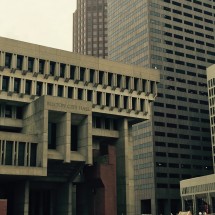Law Offices of John P. Connell, P.C.: On February 14, 2013, the Massachusetts Appeals Court issued an Opinion holding that a defamation lawsuit brought by a disc jockey against two former Boston Licensing Board Police Detectives was improperly dismissed on summary judgment by the trial court, and that the two former detectives must now stand trial on the plaintiff’s claims. The full opinion of the Appeals Court’s ruling in Dear v. Devaney, et al., No. 12-P-721 can be read here.
The lawsuit was brought by Anthony Dear, a State Police Officer who was granted permission by the State Police to “moonlight” as a disc jockey in Boston area nightclubs. The two defendants were Detectives John Devaney and Kevin McGill, who were at the time the two detectives assigned to the Boston Licensing Board and Mayor’s Office of Consumer Affairs and Licensing; the two boards charged with enforcing the laws relative to alcoholic beverages and entertainment in the City of Boston.
Most restaurants and bars in the City of Boston have received an inspection by Detectives Devaney and McGill over the years and many have also received violation notices. Accompanying a violation notice was often a short statement by Detective Devaney or McGill stating alleged factual matters relative to the violation. This report would then form the basis for a hearing before either the Boston Licensing Board of the Mayor’s Office on Consumer Affairs and Licensing.
Dear filed this defamation lawsuit against Devaney and McGill based upon statements contained in such a report issued in 2006 relating to an overcrowding violation issued to the now defunct 33 Restaurant and Lounge on Stanhope Street in Boston. In the report, the two officers stated that Dear contributed to the overcrowding situation and, more importantly, was considered not to be just a disc jockey but one who is working for a promotion company that “consistently violates the rules and regulations” of the licensing boards. It was alleged by Dear that these defamatory statements, and further efforts by Devaney and McGill to aggressively investigate any club that employed Dear, caused clubs around Boston to stop hiring Dear as a disc jockey.
The lawsuit was dismissed in the trial court based upon the “absolute privilege” that courts have traditionally applied to statements made by police officers in police reports within the context of a judicial or administrative proceeding. Such an “absolute privilege” is usually a complete defense to defamation lawsuits, even if the statements were false and made with the intent to damage a person’s reputation. The Appeals Court, in this case, however, reversed the trial court in a surprise decision and held that statements made in a police report during the investigatory stage, prior to the initiation of a judicial or administrative proceeding, enjoy only a “qualified privilege.” As a result, Devaney and McGill must now have the claims of Dear decided by a jury at trial.
This Appeals Court decision is significant in that it establishes that all statements made in similar police reports, particularly those investigating licensed establishments, are now subject to a potential defamation claim should the restaurant or bar owner believe the statements contained in the report are false and were published with intent on the part of the officer to improperly damage the business of that restuarant or bar. While this ruling will make it more difficult for police officers to communicate their “findings” when investigating alleged violations, the licensed establishment owner that believes his or her business has been unfairly “targeted” for investigatory scrutiny may now have some firm ground to stand on should he or she want to challenge such alleged “findings” beyond the jurisdiction of the licensing boards.
© Law Offices of John P. Connell, P.C., 2013.

